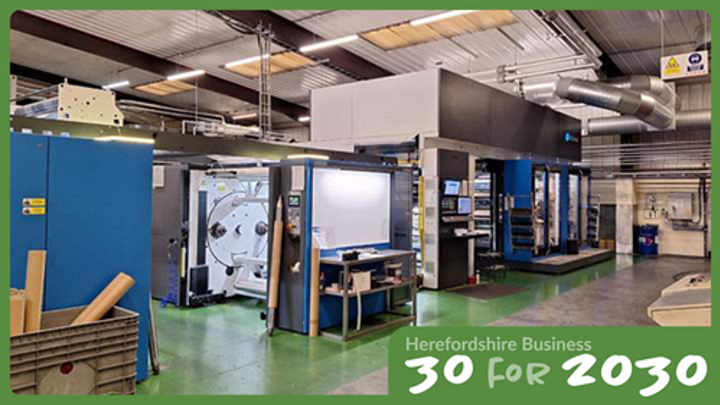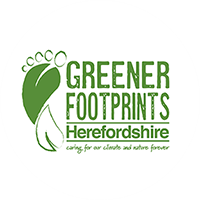
Alfaplas
Who
From their home (for over 40 years) on the Rotherwas Industrial Estate in Hereford, Alfaplas produce plain and printed flexible film and paper for packaging. After years of expansion, they now have four printing presses producing more than 500 tonnes of printed films and papers each month. In 1992 they became part of the SPhere Group, a French company and Europe's number one producer of household wraps and waste collection packaging. They know plastic is, not surprisingly, quickly associated with single use plastics and all the problems they have for the environment. But they are also part of a company and sector that is working to combat the impact of plastic while harnessing its benefits. Just one example is the pioneering strides the company is making with plastics called biofilms, which - made from starch rather than plastic beads - are biodegradable. Around 15 per cent of their plastics are now biofilm. Knowing the benefits of plastic for the environment - for example preventing fresh food waste during storage and transport, while cutting CO2 emissions and energy use during transport of goods because of its light weight (when compared to paper packaging, for example), they see investment in biodegradable plastics have enormous potential. "We take environmental issues incredibly seriously and promote compostable and recycled products," says Huw Lewis, the company's Compliance Officer. "It's our policy to prevent and reduce pollution, power and fuel consumption."
Why they signed up to 30 for 2030
For lots of reasons, but a key priority is to save energy, and to learn how to do that more effectively. "We want to drill down into the alternatives," says Huw. "For example, our oxidiser (which helps with extracting harmful emissions in our production process) generates a lot of heat and we are looking at how we can reuse that lost energy in our production process." Lewis says they're also glad to be part of the conversations generated by the 30 for 2030 and what they can learn from the network. How they use solar, LED lighting, and much more. "Our energy audit is helping us review what we do, and what we could do better," says Huw.
Steps taken
The company has a target-driven environmental and sustainability policy, covering a whole number of issues such as the reduction of energy consumption, and the adoption of products from sustainable sources (like wooden pallets). They've just had new (way more energy efficient) printers brought into their base.
In their own words
"We're committed to developing more products using bioplastics and compostable materials," explains Huw. "The aforementioned biofilms could be a game changer. "But we also see there is work to be done promoting environmental issues - including the correct reuse and recycling of plastics and all other packaging - in our own company and among suppliers, contractors and business partners. For example, it's easy to think anything not plastic is environmentally friendly and so more disposable when paper and cotton packaging and bags are both resource heavy - paper bags, for example, requiring four times more energy than a plastic one but with the potential to be reused far less. We want to be part of a bigger, joined up conversation across the board to help audiences, all of us, know what we have and how to use, reuse or recycle it properly and responsibly."

